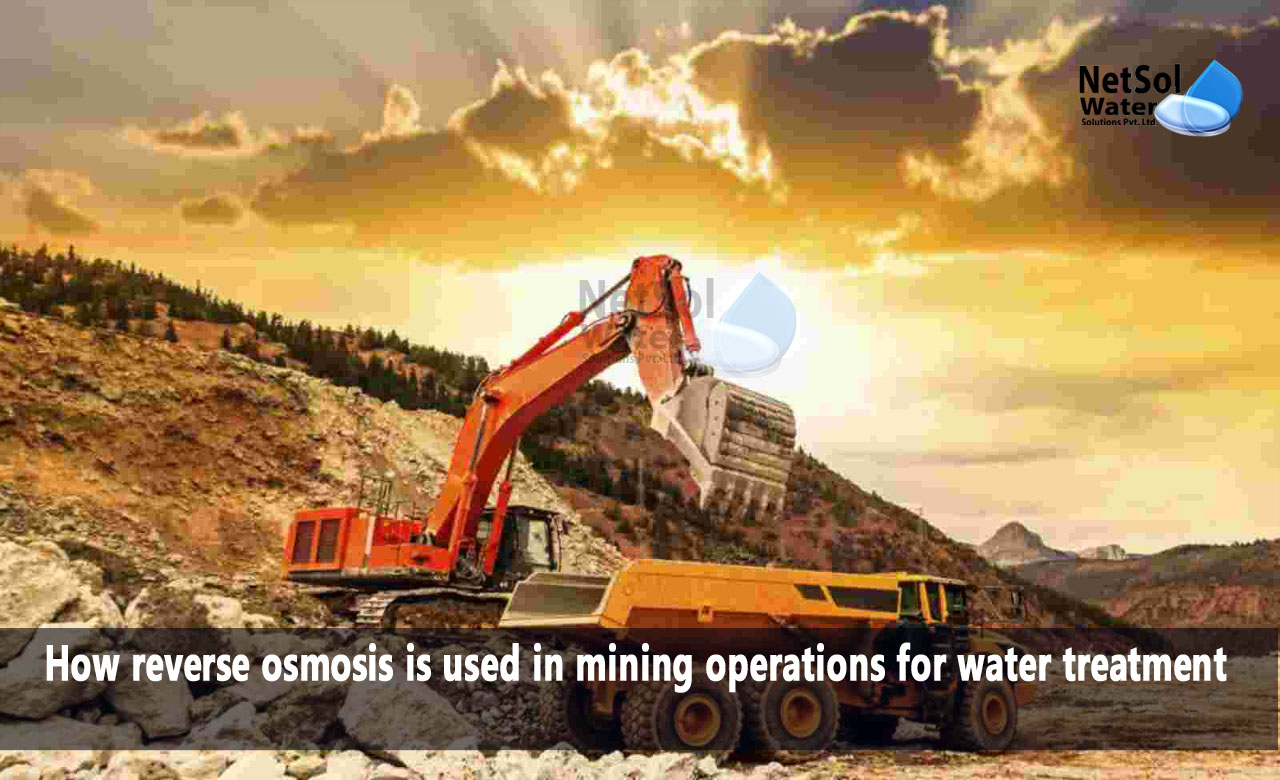How reverse osmosis is used in mining operations for water treatment?
Mining operations often require significant amounts of water for various processes, such as ore processing, dust suppression, and site maintenance. The management and treatment of water in mining operations are essential not only for operational efficiency but also for environmental stewardship. Reverse osmosis (RO) has emerged as a valuable water treatment technology in mining, offering effective purification and resource recovery solutions. In this blog, we will explore how reverse osmosis is used in mining operations for water treatment and the recovery of valuable resources.
Water Treatment in Mining:
Mining activities can lead to the generation of wastewater that contains various contaminants, including suspended solids, heavy metals, and chemicals. Proper treatment of this water is crucial to meet regulatory requirements and minimize environmental impact. Reverse osmosis plays a significant role in the following water treatment processes in mining operations:
a. Removal of Impurities: Reverse osmosis is effective in removing dissolved solids, heavy metals, and other contaminants from mining wastewater. The semi-permeable membranes used in RO systems allow water molecules to pass through while retainingthe majority of impurities, resulting in purified water.
b. Desalination: In mining operations located in coastal or arid regions, desalination of seawater or brackish water may be required. Reverse osmosis is a commonly used desalination method, capable of removing salt and other dissolved solids from water, making it suitable for various mining processes.
Resource Recovery:
Reverse osmosis not only provides water purification but also offers opportunities for resource recovery within mining operations. Valuable resources can be extracted or concentrated from the reject stream generated during the reverse osmosis process. Some resource recovery possibilities include:
a. Concentrated Mineral Recovery: The reject stream or concentrate from reverse osmosis systems can contain high concentrations of minerals and metals. Depending on the specific mining operation, this concentrate can be further processed to recover valuable minerals or metals, contributing to resource efficiency and potentially reducing waste.
b. Water Reuse: Reverse osmosis-treated water can be reused within the mining operation for non-potable purposes such as dust suppression, vehicle washing, and equipment cooling. This helps reduce freshwater consumption and promotes sustainable water management practices.
Benefits and Considerations:
Reverse osmosis brings several benefits to mining operations, including:
a. Water Quality Improvement: Reverse osmosis systems effectively remove impurities, heavy metals, and contaminants from mining wastewater, enabling compliance with water quality standards and minimizing environmental impact.
b. Resource Conservation: Reverse osmosis allows for the recovery and potential reuse of valuable resources present in the wastewater, contributing to resource efficiency and reducing waste generation.
c. Operational Efficiency: Implementing reverse osmosis systems in mining operations can enhance water management, reduce freshwater usage, and minimize the need for external water sources, resulting in improved operational efficiency.
However, there are certain considerations to keep in mind when utilizing reverse osmosis in mining operations:
i. Membrane Fouling: Mining wastewater can contain substances that may cause fouling or scaling on the RO membranes, reducing system efficiency. Proper pretreatment and regular maintenance are essential to prevent fouling and ensure the long-term performance of the reverse osmosis system.
ii. Energy Consumption: Reverse osmosis is an energy-intensive process due to the high pressures required for water purification. Mining companies should carefully consider the energy requirements and explore energy-efficient design options or utilize renewable energy sources to minimize environmental impact.
Conclusion:
Reverse osmosis technology plays a crucial role in water treatment and resource recovery in mining operations. It enables effective purification of mining wastewater, removing impurities and contaminants, while also providing opportunities for resource extraction or concentration. By implementing reverse osmosis systems, mining companies can enhance water management practices, improve operational efficiency, and minimize their environmental footprint. The application of reverse osmosis in mining exemplifies the intersection of technology, sustainability, and responsible resource management in the industry.
Netsol Water is Greater Noida-based leading water & wastewater treatment plant manufacturer. We are industry's most demanding company based on client review and work quality. We are known as best commercial RO plant manufacturers, industrial RO plant manufacturer, sewage treatment plant manufacturer, Water Softener Plant Manufacturers and effluent treatment plant manufacturers. Apart from this 24x7 customer support is our USP. Call on +91-9650608473, or write us at enquiry@netsolwater.com for any support, inquiry or product-purchase related query.



